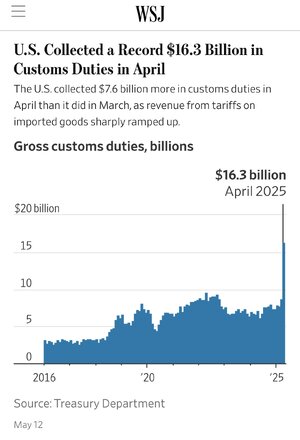We did that. Eight times actually, plus an attempt at a ninth.

en.wikipedia.org
The US is not subject to high tariffs abroad. That is just a mistake of fact. There are countries that have high tariffs on goods we don't make. In theory, Bangladesh has high tariffs relative to ours in textiles. But we don't sell textiles to Bangladesh and we don't want to. Those tariffs are insulating the Bangladeshi domestic market from, say, India or Burma. It doesn't affect the U.S.
Understand that, in all of those rounds of negotiating, the overriding US goal was a reduction in trade barriers around the world. For decades we worked with other countries to lower tariffs, and it worked very well as evidenced by the achievements of the negotiation rounds. It is not the case that those tens of thousands or people (or more) involved in those discussions were idiots. Trump is an idiot, and he's lying to you about the world economy. Or someone is lying to you.



